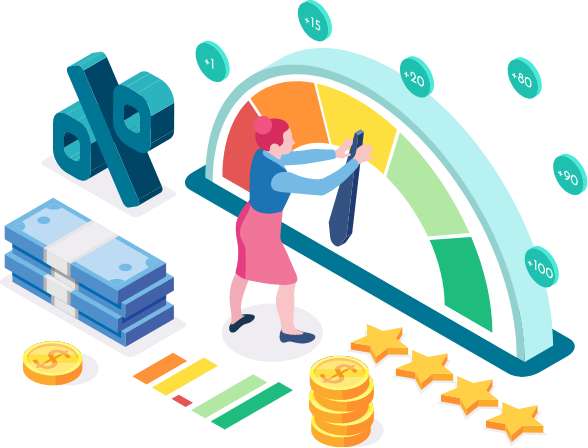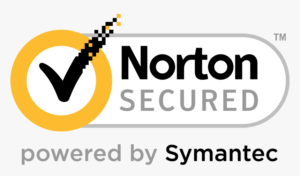What’s a Small Business
Credit Score?


For any new small business, establishing a business credit profile is a critical first step. The benefits of having good business credit reports include being able to demonstrate the separation between owners and their companies and also keeping your personal credit history separate from your firm's credit history. There are numerous advantages to having strong business credit for a small business to prepare for business loans.
As a small business owner, preparing your business for better payment terms with new suppliers and providers reduces the number of times you'll need to prepay for products or services you buy, allowing you to negotiate better terms and rates with banks and lending institutions.
If you're a small business owner applying for credit, it's important to understand what makes up your good business credit score and how you can access your business credit report.
Maintaining and protecting your business credit, just like your personal credit, should be a top priority once you've built a solid foundation.
The Difference Between Business
Credit Score and Personal Credit Score
From the Small Business Administration (SBA), your business credit score measures the health of your company by tracking how you manage its accounts, while your personal credit report score reflects your personal payment history. To evaluate a small business owner's creditworthiness, lenders sometimes look at both credit scores in tandem. Here we provide you with basic data regarding the small business credit score and its ups and downs. The next factors will determine a good business and personal credit score:

Rating Agencies
Businesses rely on agencies such as Dun & Bradstreet, Equifax, Experian, and even their own proprietary formula to secure funding from consumers. Most rating agencies want to see that a business has a decent credit line but only uses about 25% of its available credit.
Range
A person's business credit scores range from 300 to 850 points high. Credit scores for businesses range from zero to 100.
Standardization
VantageScore or FICO are used by the majority of consumer credit reporting agencies for standardization. It's more common in the world of commercial lending for lenders to create their own standards or employ rating organizations to make their selections. Almost every small company lender employs a different formula for approving loans.
Access
You can get personal credit scores for free from a variety of sources, while business credit scores are only available from a few. D&B, Experian, and Equifax—three of the four major business credit reporting agencies—all charge a fee to furnish you with your score.
Data
There are a few small business lenders who will take into account both your personal and your business credit ratings.
Understanding Business Credit Score
Let's take a step back for a moment to consider why and how company credit scores are so important before getting into the nitty-gritty of how to monitor and use them. Even the most educated business owners have a hard time comprehending the intricacies of business credit.
It's complicated for a variety of reasons, but it's also critical.
How Business Credit is Scored
As mentioned before, Equifax and Experian are just a few of the credit reporting organizations that keep tabs on business credit scores. Each agency has its unique system for calculating credit scores. Credit scores for businesses often fall somewhere in the range of 1 to 100, though this is not always the case.
The following are some examples of scores that could be considered when evaluating the creditworthiness of your company:
PAYDEX® Score
Your company's payment history is used to calculate your PAYDEX® Score for a period of one year that is rolled over.
Equifax Payment Index
The Equifax Payment Index takes into consideration the payment history of your company.
Experian Intelliscore Plus
The Experian Intelliscore Plus takes into account the length of time your business has spent making timely payments.
Speak To A Loan
Specialist Now!
How Business Credit is Reported
Credit reporting firms like Equifax and Experian can provide you with a copy of your company's credit report. Even if you're the business owner, you'll have to pay for these reports to get your credit score in order. You'll have to pay to see your company's credit report and score at the three major business credit bureaus, Dun & Bradstreet, Experian, and Equifax. Access your Equifax risk scores — Equifax Business Credit Risk Score and Equifax Business Failure Score.
Knowing your score can help you receive the information you need to improve your score, including which accounts are negatively affecting your report and any disputable elements.
What is a Good Credit Score For Small Businesses?
In the end, this is possibly the essential question in this piece. One of the most challenging issues to answer is because every lender has a different formula for selecting when to offer credit.
In general, small business lenders like to see a business credit score of at least 75; however, local lenders may accept lower ratings for newer enterprises or startups. Individuals with credit ratings below 500 are extremely unlikely to get approved for traditional consumer loans. Other possibilities exist for those who are willing to pay higher interest rates and longer payment terms.
The Importance of Establishing Good Business Credit Scores
Lenders typically don't consider a small business's credit history to be established until it has three business credit cards, two loans fully paid off, and five “trade-credit” accounts. Businesses' payment history is often obtained from sources such as vendors, banks, and company credit card issuers, which are all credit bureaus. In order to get a better understanding of your company's annual revenue and expenses, as well as the number of employees and if the bills are paid on time, they use this information.
In addition to searching public records, credit bureaus also look for information about your company's payment history, such as bankruptcies, tax liens, and other possible red flags.
Factors That Determine your Business Credit Score
Longevity
You've been in business for how long now? The longer you've been in business, then the better your credit score is likely to be.
Revenues
How much money do you make each year? Having a successful business could have a beneficial effect on your score.
Assets
What kinds of assets does the company have? Your credit rating is likely to improve if you own some assets, such as real estate, a car, or a house.
Outstanding Debt
What kinds of loans and credit cards do you have at the moment? If you make on-time payments and use credit in a responsible manner, this will have a favorable impact on your credit score and increase the likelihood that you will be approved for a loan if you apply for one in the future.
Personal and Business Loan History
How long have you been in business, and how long have you had personal credit? Which kind of loans have you taken out in the past, how much have those loans cost you, and how quickly have you paid them back? This can have an effect on your score as well as make you more appealing to potential lenders if you have a history that suggests your likelihood of paying back loans in the future.
Personal Credit History
A credit report summarizes how you've handled your credit accounts, as well as personal finances, including the sorts of accounts you have and your payment history, as well as other information that lenders and creditors send to credit bureaus. There are a variety of different forms of loans for which you can be approved or denied based on the three-digit number that represents your credit history.
Public Records
UCC filings, as well as other data, such as liens or if you’ve ever been convicted of any infraction, misdemeanor, or felony. Even a speeding ticket can affect your credit score.
Get the capital you need to allow your business to grow, today!
Industry Risk
Lenders have a different perspective on certain sectors than they do on others based on the previous data they have collected. Some examples of these industries include pubs and restaurants.
How to Raise Your Business’ Credit Score
Encourage the businesses you do business with, including vendors and suppliers, to report a favorable payment history on your behalf to the credit bureaus. Begin your search with larger companies since they are more likely to have established relationships with major credit bureaus as "furnishers" of this information.
Make sure you pay on time or early. This can also help enhance your credit record, but you need to be sure to keep in mind the cash flow demands you have moving forward.
Make sure you don't max out your business credit. The percentage of your available credit that you utilize, known as credit utilization, is recommended by many industry professionals to be kept at or below 30 percent. Your credit score will drop if you use too much of your available credit.
Establish Trade Credit Accounts
Establish trade credit accounts are also known as accounts with vendors who are willing to provide you "terms" such as paying in 30 days instead of immediately. Big-box retailers that provide office supplies and home improvement goods are a fantastic location to begin looking for what you need.
If you engage with particular suppliers over and over again with a strong payment connection, open a credit account with them to boost the number of positive payments to your file. This can enhance your business credit score.
Additionally, making transactions from third-party sellers for your business's supplies, ingredients, or other things might assist in establishing your company's credit.
Encourage Others To Report Your Payment History
Suppliers often provide payment terms of a few days or even a few weeks after receiving the goods. Make sure that your supplier reports your payments to a business credit bureau if you have an accounts-payable connection like this one. In order to raise your business credit rating, you must adhere to the conditions of the contract.

For example, sometimes, to receive a PAYDEX® Score, you must have at least three tradelines. It's possible to establish trade lines with any small vendor, even if you don't work with a lot of suppliers. These suppliers may not report to credit bureaus, but you can identify them as a trade reference on your account.
Pay Bills on Time Early
Paying your payments on time is a no-brainer and one of the simplest methods to enhance your company credit score. However, if you fail to do so, your credit score will suffer, negating the benefits of any other steps you take to improve it.
Refrain From Maxing Out Your Credit Card
With a credit card, you are assigned a credit limit, the most money you can borrow. Once you've reached your credit limit, then you're not available to make purchases with your credit card.
FAQ
What if Your Business’ Credit Score Isn’t Being Tracked?
Credit bureaus may not begin tracking your business for several months or even years. When it comes to being watched by credit bureaus, most firms don't have to do anything.
For credit bureaus, having a trackable business entity such as a partnership, LLC, or corporation might be beneficial when it is appropriate. Apply for a federal EIN (Employee Identification Number) from the IRS, create a business bank account, and receive a business credit card with the company's legal name. It all helps to create a distinct corporate credit profile.
What if You Spot an Error?
It's important to monitor your business's credit score and analyze credit reports for correctness and anomalies on a regular basis to keep track of your progress. Your credit scores can be checked at any of the main credit bureaus. Some of these resources are free to use, while others charge a fee to access them. The credit bureau that reported the inaccuracy should be contacted to file a dispute.
However, every day you have the chance to improve your credit rating when it comes to both personal and business finances. Excellent credit history might help your firm weather any storms that may arise in the near future.
Quick Capital Funding is willing to guide you in the right direction of getting the loan you deserve.



